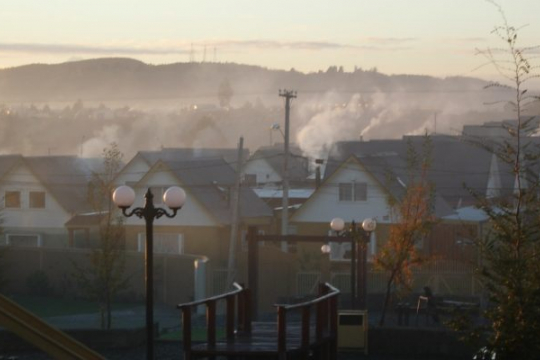Air pollution in urban areas is one of the most severe environmental problems facing developing and transition economies. In Chile, many cities exceed the World Health Organization's norms for ambient concentration of particulate matter. In this paper, we analyze the factors explaining individuals' perceptions on fuelwood as the main cause of air pollution in urban areas and their willingness to ban this fuel to counteract its negative effects. We also explore variation across these perceptions and preferences based on individuals' degree of familiarity with air pollution and the extent to which they are affected by the regulation in place. Using data from the fourth environmental survey in Chile, we estimate an ordered bivariate probitmodel to account for a potential link between these perceptions and preferences. Results reveal a disconnect between perception of the problem and preferences for regulation to the extent that individuals are more likely to be affected by the regulation (i.e., fuelwood users and regulated cities). We also find that lower-income individuals are less willing to accept a fuelwood ban, and that the level of air pollution matters in shaping individuals' perceptions on the causes of poor air quality and preferences for regulations, although this depends on the measures used. Finally, we find evidence that pro-environmental behavior in other domains negatively affects the perception prohibiting fuelwood use. Thus, from a policy design perspective, it is essential to consider individuals' perceptions on environmental issues and preferences for regulations, because they might be linked with feasibility of implementation and compliance.
Perceptions of problems and preferences for solutions: The case of poor air quality in central-southern Chile
EfD Authors
Country
Sustainable Development Goals
Publication reference
Lillo, D., Salazar, C., Jaime, M., & Chávez, C. (2022). Perceptions of problems and preferences for solutions: The case of poor air quality in central-southern Chile. Energy for Sustainable Development, 66, 79–91. doi:10.1016/j.esd.2021.10.011


